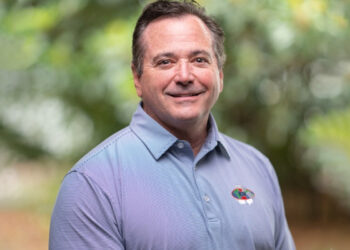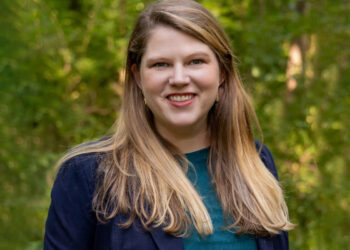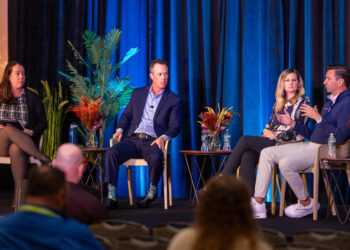Extended producer responsibility, community engagement and chemical recycling were all hot topics for Colorado service providers, business owners and municipal representatives at a recent conference.
The 2025 Recycle Colorado Summit for Recycling was held June 2-4 in Grand Junction, Colorado. The overarching theme of this year’s conference was “united by understanding,” so speakers and panels focused on eliminating jargon and creating clear communication “to unite Colorado’s regions, industries, and communities in the recovery of resources currently discarded,” the website noted.
The conference opened with Anna Stout, a current Grand Junction councilmember and previous mayor, telling the more than 200 attendees that the city has a 42% recycling participation rate and used to contract out its hauling, but bought the company a few years ago. Now, the city is working to develop a regional MRF in the next year, which will “prepare our region for the influx of recyclable materials under the new producer responsibility legislation,” she said.
“This really is a legacy project,” she said, and has been designed with future expansion in mind “so we are positioned to meet the growing EPR needs.”
Colorado lawmakers passed EPR for packaging in 2022, and the program is in development. Rob Writz, director of operations for Colorado for producer responsibility organization Circular Action Alliance, told attendees that so far 2,738 producers have registered with CAA in Colorado, with another 232 in progress. Dues are slated to be published at the end of October.
Increasing engagement
A panel of speakers also shared their insights on how to increase participation in both curbside and drop-off recycling.
Ryan Buhay, head of sales for education and outreach app Recycle Coach, noted that “every interaction with a resident is an opportunity to increase — or decrease — trust.”
Christy Turner, community programs manager for the High Country Conservation Center, noted that’s why engaging with residents in multiple ways is helpful. Her team uses homeowner association ambassadors to reach people who live in certain communities with added rules around bins, as well as unique programs like “adopt a drop-off center” to help combat illegal dumping and clean up community spaces.
Question-and-answer sessions where residents try to “stump a recycling expert” are also fun ways to get people involved, she added, and finished compost give-backs to community gardeners are always a hit.
Another way to get people excited is to tackle a visible problem, said Doug Bair with the Summit County Volunteer Foam Recycling Group. His team has worked for years to find a way to recycle EPS efficiently — Bair would regularly fill his car with collected EPS and drive it the nearly three-hour round-trip to Denver to drop it off — all because there was community desire.
Now, through sustained effort and networking, the Summit County Volunteer Foam Recycling Group has partnered with Atlas Molded Products to design a project that will address the transportation challenge.
Chemical recycling conflict
During a panel on innovations, Alterra’s Head of Public Affairs Omar Terrie and LyondellBasell’s Circular and Low Carbon Business Development Manager Leslie Schrof answered questions about their chemical recycling technologies and fielded audience questions about whether chemical recycling should count as recycling.
Terrie said he agrees that plastics-to-fuel shouldn’t be considered recycling, but rather an “alternative use.”
He added that Alterra’s facility is “a rigorously regulated facility” in a “rigorously regulated industry.”
“Between 2022 and 2024 we had every kind of government official at our facility testing every little thing. It’s like a doctor probing your whole body,” he said.
Terrie added that Alterra wants to see chemical recycling be included as part of EPR, as well as more recycled content mandates.
Schrof said LyondellBasell is investing in both chemical and mechanical recycling, as “having that optionality is important to us.”
“We’re making significant investment along what we call the value chain,” she said, and that includes “mechanical, chemical or advanced and secondary sortation.”
Terrie said he was “nervous to step into a room like this, but we need to have these conversations.”






















